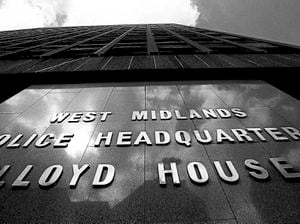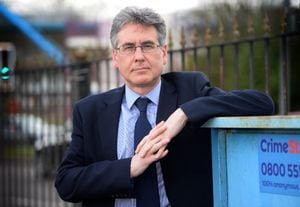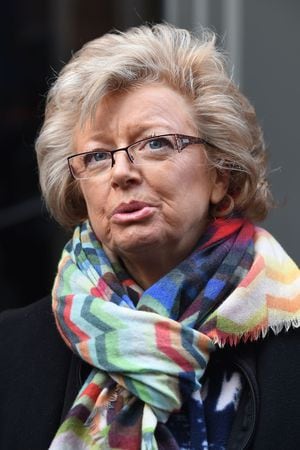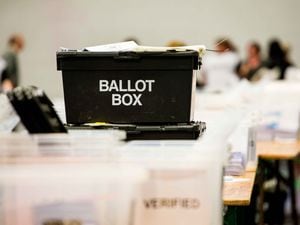West Midlands Police and Crime Commissioner election: Who are the candidates and what are they pledging?
We take a closer look at the candidates and key issues ahead of this year's PCC election in the West Midlands.

Rising crime the key issue for would-be police chiefs
Six candidates are vying to be the next West Midlands Police and Crime Commissioner at the election on May 6.
The £100,000-a-year position – which has never really caught the public' s imagination since its formation in 2012 – involves setting the annual budget for the country's second biggest force, as well as holding the Chief Constable to account.
Labour's David Jamieson is retiring at this election after seven years in the job, a period which has seen crime levels spiral out of control in the West Midlands.
The former government minister has faced widespread criticism for politicising the role, having spent much of his time in office criticising government cuts to his force's budget.
But while West Midlands has lost more than 2,000 officers since the Tory coalition took over in 2010, any sympathy for Mr Jamieson is muted by the fact that at the time, the country's finances had been wrecked under the previous Labour administration.

There was no money left, as Labour MP and current mayoral candidate Liam Byrne pointed out, meaning it could be argued that budget cuts were inevitable.
Looking at his record, it is questionable whether the the current PCC has stuck to his remit of holding the force to account.
He and Chief Constable Sir David Thompson have always tended to operate hand in glove, and at monthly strategic board meetings it is hard to recall any tough questions being asked over the force's work.
Mr Jamieson faced criticism over his decision to appoint disgraced former councillor Waheed Saleem as his deputy despite cross-party opposition from his own crime panel.
Initiatives such as the Serious Violence Reduction Unit and knife surrender bins could be seen as successes of the PCC's reign, but it is hard to make a case that the position has been of any benefit to residents in the West Midlands.
In the 2016 election the turnout was just 28 per cent (it had been a truly horrific 10 per cent in the by-election two years earlier), and the jury is still out on whether the PCC role is an improvement on the old police authority.
Many still see it as a gross waste of taxpayers' money, and whoever wins next week will have a job on their hands to convince people otherwise.
The familiar Red vs Blue battle
The previous three PCC elections in the West Midlands have been red vs blue battles, and this one is expected to be no different.
In 2016 Labour won comfortably, although the political landscape has changed markedly since then.
It is worth noting that this election uses a different polling method involving people choosing a first and second choice of candidates.
Votes are then collated from each of the seven combined authority areas. Any candidate getting more than 50 per cent of the vote will be declared the winner, otherwise second preference votes are taken into account.
In recent years the Tories have been in the ascendancy across parts of the region, and will be hoping that their candidate Jay Singh-Sohal can capitalise on surges in Conservative support in Dudley and Walsall in particular.

The Conservatives may also expect to benefit from the fact that Labour-dominated Birmingham has no local council elections this year, which could potentially reduce numbers at the ballot box.
In the age of Covid, postal votes could also play a bigger than usual role.
Mr Singh-Sohal, an army reservist and strategic communications director, has vowed to end years of "Labour failings" on policing, with a plan to boost neighbourhood police numbers and cut down on bureaucracy.
His Labour opponent is devout Corbynite Simon Foster, a legal aid solicitor and Black Lives Matter supporter who wants to invest in youth services as part of plans to tackle knife crime.

Birmingham pub bombings campaigner Julie Hambleton is standing as an independent. She has been critical of current Labour PCC Mr Jamieson for politicising the role, and has positioned herself as the anti-politician candidate.
The 58-year-old, who established the Justice4the21 campaign after her sister was killed in the city centre bombings in 1974, is pushing for improved transparency in the force and better support for victims.
Social justice campaigner Bishop Dr Desmond Jaddoo is representing the newly-formed We Matter Party, with a pledge to bring West Midlands Police closer to the communities that it serves.
He has vowed to move on from the "political spin and rhetoric" that surrounds the current PCC's office and is calling for "more open and transparent community policing".
Birmingham councillor Jon Hunt is standing for the Lib Dems and he surely has the most bizarre pledge.
Should he win, Mr Hunt has vowed to abolish the role and absorb it into the position of West Midlands Mayor.

This puts him on the same page as Tory West Midlands Mayor Andy Street, who tried to do just that in 2019 but was voted down by Labour council leaders.
Consultant Mark Hoath, the son of a retired Police Chief Superintendent, is the candidate for Reform UK, the rebranded Brexit Party.
He wants to bring in a New York City-style "broken windows" policy, where action taken on minor crimes leads to a reduction in major crimes.
The winner will be announced on May 8 and will serve a three-year-term.
Candidate manifesto pledges
Simon Foster (Labour): "Justice, safety and security"
- 450 extra community police officers on the streets
- investment in youth services to prevent crime
- prioritise tackling violence against women
- fight for more government funding
- invest £3.2m into victims' services
- increase the proportion of women involved in scrutinising the work of the force
- require 'equality impact assessments' to be carried out before all major police decisions
Julie (Jools) Hambleton (Independent): "Cut out the political claptrap"
- review the force's procedures for recording crime to ensure all offences are logged
- make the force more diverse and encourage more women in senior positions
- more bobbies on the beat to aid crime prevention
- clamp down on pet theft
- make the force more transparent and answerable to the public
- to fight for justice for all victims of crime
Mark Hoath (Reform UK): "More PCs, not PC"
- zero tolerance approach to so-called minor crimes
- stop the force wasting money on "woke policies"
- get more officers out of cars and offices and onto the streets
- increase officer numbers in communities to deter criminals
- enable rank and file officers to do their jobs without being bogged down by "politically correct" initiatives.
- ensure fairness in how the police deal with different communities
- make sure all crimes are investigated
Jon Hunt (Lib Dem): "Make policing local"
- draw up local policing plans with teams based in each community
- scrap police station closures and ensure officers have bases in each community
- scrap the office of PCC and incorporate its functions into the Mayor's role
- focus on road safety and snaring dangerous drivers
- support prevention initiatives to combat knife crime
- advocate a public health approach to reducing violence
- beef up victim support services
Desmond Jaddoo (We Matter Party): "Ensure the communities are the police and the police the community"
- address inequalities in policing
- ensure all communities are fairly represented
- stop policing from becoming "boring and irrelevant" by ending political rhetoric
- bring the force closer to the public by consulting people over a new policing plan
- tackle knife crime through community engagement and knife surrender bins
Jay Singh-Sohal (Cons)
- stop police station closures
- deploy 350 new officers into neighbourhood policing units
- review the force's estates programme to ensure areas outside Birmingham do not lose out
- tackle domestic violence by recruiting and training more specialist PCSOs to be first responders
- beef up stop and search by equipping more officers with airport style scanners
- reduce bureaucracy, including scrapping deputy PCC role
- create a dedicated phone line to support victims of hate crime





